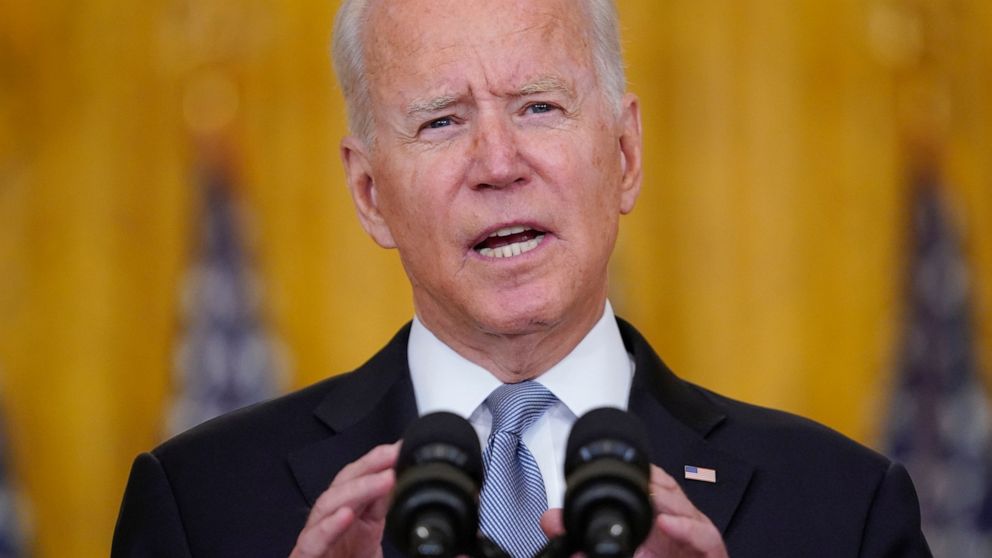President Joe Biden on Wednesday unveiled a plan to ensure employees are vaccinated against Covid-19 in government-sponsored nursing homes and to withhold funds from those who break the rules.
This is the first time the White House has threatened to withhold government money to increase vaccination rates, affecting 15,000 health facilities that employ 1.3 million people. In September, the Centers for Medicare and Medicaid Services will pass emergency regulations requiring staff to be vaccinated as a condition of receiving money.
While officials in the Biden administration have been promoting vaccinations and supporting government-level incentives for those vaccinated for months, the upcoming decision represents a radical shift towards punishing improper facilities.

“During the existence of the virus, more than 130,000 patients in nursing homes have died. On the other hand, the vaccination rate for healthcare workers lags behind the rest of the country, ”Biden said in his White House speech. “With this announcement, I am using the federal government's ability to pay health care costs to ensure that our most vulnerable seniors are protected. These precautions are designed to protect people and protect them from harm. "
High vaccination rates among nursing home workers are associated with a 30% reduction in Covid-19 cases in long-term patients, research shows.
Earlier this month, the administration offered to introduce vaccinations, which sparked outrage from Republicans and industry groups, who said they would fight it.
In comments on the need for Covid-19 boosters among the general population, Biden announced the order, citing the continued outbreak caused by the Delta variant, which now accounts for nearly all new cases of Covid-19 in the country. Biden also supported expanding workplace vaccination mandates and advocated cover-up in schools to keep young people safe.
The health department will still have to develop and agree on new rules that are expected to come into effect next month. According to the CDC, only 60% of health workers have been vaccinated against Covid-19. Many of the people most vulnerable to the severe form of Covid-19 and the impact of further variations are served by these workers, who serve around 1.6 million people who provide health services.
New statistics released by the Centers for Disease Control and Prevention on Wednesday showed a sharp drop in vaccine effectiveness, especially among nursing home residents, raising concerns that the most vulnerable remain at risk as the virus spreads among them.
Several states have already introduced vaccination requirements for nursing home staff, "and this measure will set consistent and fair standards across the country," the White House said.
This is the first time the White House has threatened to withhold government money to increase vaccination rates, affecting 15,000 health facilities that employ 1.3 million people. In September, the Centers for Medicare and Medicaid Services will pass emergency regulations requiring staff to be vaccinated as a condition of receiving money.
While officials in the Biden administration have been promoting vaccinations and supporting government-level incentives for those vaccinated for months, the upcoming decision represents a radical shift towards punishing improper facilities.

“During the existence of the virus, more than 130,000 patients in nursing homes have died. On the other hand, the vaccination rate for healthcare workers lags behind the rest of the country, ”Biden said in his White House speech. “With this announcement, I am using the federal government's ability to pay health care costs to ensure that our most vulnerable seniors are protected. These precautions are designed to protect people and protect them from harm. "
High vaccination rates among nursing home workers are associated with a 30% reduction in Covid-19 cases in long-term patients, research shows.
Earlier this month, the administration offered to introduce vaccinations, which sparked outrage from Republicans and industry groups, who said they would fight it.
In comments on the need for Covid-19 boosters among the general population, Biden announced the order, citing the continued outbreak caused by the Delta variant, which now accounts for nearly all new cases of Covid-19 in the country. Biden also supported expanding workplace vaccination mandates and advocated cover-up in schools to keep young people safe.
The health department will still have to develop and agree on new rules that are expected to come into effect next month. According to the CDC, only 60% of health workers have been vaccinated against Covid-19. Many of the people most vulnerable to the severe form of Covid-19 and the impact of further variations are served by these workers, who serve around 1.6 million people who provide health services.
New statistics released by the Centers for Disease Control and Prevention on Wednesday showed a sharp drop in vaccine effectiveness, especially among nursing home residents, raising concerns that the most vulnerable remain at risk as the virus spreads among them.
Several states have already introduced vaccination requirements for nursing home staff, "and this measure will set consistent and fair standards across the country," the White House said.
Comments
Post a Comment